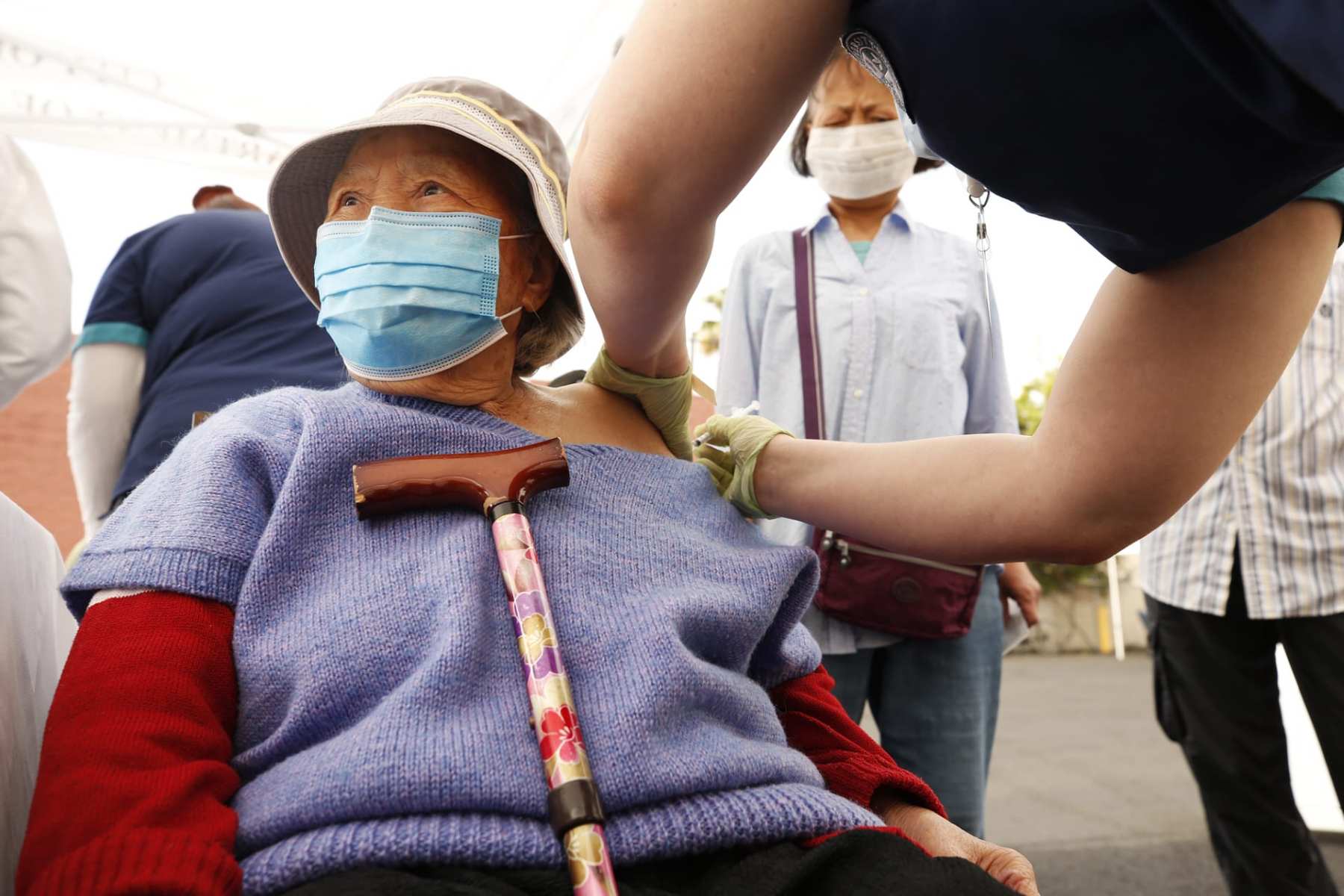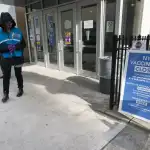Be the first to read our 100 days coverage. Subscribe to our newsletter today.
The Biden administration has easily surpassed its goal of disbursing 200 million COVID-19 vaccines in its first 100 days in office, but it’s nearly impossible to know if the president has fully delivered on the second part of that promise: to distribute vaccines equitably.
While the federal government has collected vaccination data by race, sex and age, it has not analyzed any of those metrics concurrently. That means that even though the Centers for Disease Control and Prevention has the data, it cannot say, for example, if people of a particular age group and sex are more likely to have been vaccinated.
The 19th made multiple requests to the CDC for an analysis that looks at race and sex together, but the agency did not provide one. Independent experts said the agency theoretically should have the resources to do so. A planned study looking at age and sex together — but not race — is in the works, to be delivered next month.
That lack of intersecting data could keep vaccines from reaching vulnerable populations, experts say.
While state health departments have their own datasets, only three — South Carolina, Michigan and West Virginia — are publicly tracking immunizations at the intersection of race and sex. This makes it difficult to extrapolate onto the rest of the country.
Altogether, experts say, it’s impossible to fully understand who has been vaccinated and who is struggling to get a shot. They fear that could handicap equity efforts moving forward, since federal and state authorities won’t know whom to target for vaccine outreach or what kinds of specific obstacles those groups may face. Polling suggests that women older than 65 may have been less likely to be vaccinated than men of the same age, but the CDC has not looked at that question itself, or analyzed it through a racial lens as well.
“Data and disaggregated consistent data is really key for efforts to advance equity,” said Samantha Artiga, director of racial equity and health policy at the nonpartisan Kaiser Family Foundation. “We need the data to measure who is and who is not getting vaccinated. Without the data, we’re really missing that picture.”
The pandemic had emerged as a story of racial inequity, even as the government struggled to collect robust data. Black, Latinx and American Indian/Alaska Native people are significantly more likely than White people to have contracted COVID-19, to have been hospitalized as a result and to have died. That disparity is reflected in the CDC’s own tally.
In general, men appear more likely to have died of COVID complications than women. But even when tracking the coronavirus’s incidence or impact, there are no official estimates looking at race and gender together.
That has led to major blind spots, researchers say, pointing in particular to an academic paper that suggested Black women are one of the most vulnerable groups and dying from COVID-19 at far higher rates than White or Asian men. Even in that paper, researchers could look at only Georgia and Michigan, since they were the two states that were collecting COVID-19 data disaggregating race, age and sex. And limitations with those states’ data collection meant they could not look at COVID’s disease burden for Latinx people.
“We have been concerned from the beginning about disaggregated COVID-19 outcomes data by sex without looking at any interacting variables,” said Dr. Sarah Richardson, an author on the study and director of Harvard University’s GenderSci Lab. “Our work showed there was more variation among women in outcomes than among White women and White men, for example.”
She worries that similar disparities could emerge in vaccination rates — with greater variation between White women and Latinas, for instance, than between White men and women. But without the data, there is no way to know, let alone adjust public outreach accordingly.
“There can be greater variation within one of those categories, and that sort of disaggregation by sex — well men are this way and women are this way — clearly masks meaningful variation,” Richardson added.
Meanwhile, the Biden administration has acknowledged that vaccinations will only become harder as the nation moves from the first half of its immunization campaign — getting shots in arms of people who are eager and able to navigate cumbersome websites, spend hours on the phone, or take time off work for the vaccine appointment — to now work to reach the almost 50 percent of Americans who don’t have those advantages or inclinations.
That sort of effort will be more difficult if public health officials don’t have a clear understanding of who those people are and what barriers are keeping them from getting a shot, experts say.
“‘It’s a constant struggle we continue to work with,” said Anne Zink, Alaska’s chief medical officer, the president-elect for the Association of Territorial and Health Officials. “We need that data.”
The entities that administer vaccines, including retail pharmacies, mass vaccination sites, doctors’ offices, and the clinics run by state and local authorities, provide the CDC with data on the race, sex and age of those getting the shots. The CDC has not collected data that looks at gender separately from sex, or that accounts for nonbinary people.
The CDC’s aggregate racial data suggests that Black and Latinx people are less likely to have been vaccinated than White people, a discrepancy health researchers and advocates attribute in large part to unequal access and a scramble for shots that has privileged people who have stable internet access, who speak English, and who have the resources and time to travel somewhere for a shot.
Though Latinx people make up 17.2 percent of the population, they represent only 12.1 percent of people with at least one shot. Black people constitute 12.4 percent of the population but only 8.6 percent of people who have started the immunization process.
But that disparity isn’t considered or analyzed in conjunction with the CDC’s sex-based vaccine analysis, which suggests that women are slightly more likely than men to have been immunized. Researchers say that could be because state governments prioritized vaccines for professions such as health care and teaching, two sectors that predominantly employ women.
Still, because the government’s sex-based data does not also look at race, some experts worry that White women could be overrepresented and create an impression that Black women and Latinas aren’t at risk of missing their shots. Ultimately, that could lead to public health strategies that don’t consider their needs.
“I hope that’s not the narrative out there, that more women are perceived to be vaccinated. That data is not telling the real story,” said Dr. Deepthi Pandita, the chief health information officer at Minnesota-based Hennepin Healthcare, who has studied local vaccination data.
In her home state, for instance, nurses and teachers both skew heavily White. She worries that if public health strategy does not look at race and gender together, women of color could be overlooked.
As the federal and state governments decide how to finish the vaccine effort, Pandita said they should consider that unvaccinated women are more likely to be caregivers and that vaccine availability must accommodate child care needs.
“We have to do [data collection at] the intersection,” she said. “You have to understand the people you’re serving, to do what it takes to get them vaccinated, and take the vaccine to them.”






